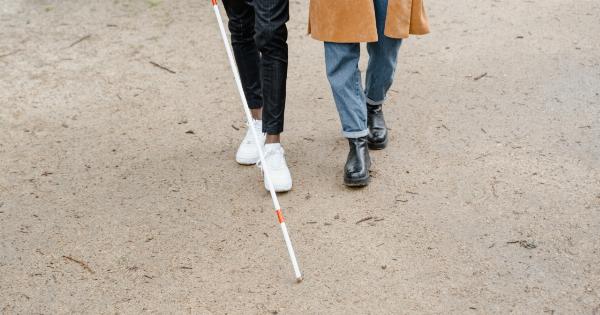Have you ever experienced a cramp? The sudden spasm of muscles that can leave you in pain and immobile for a few moments? Cramps are a relatively common problem that can occur in anyone, regardless of age or gender.
From athletes to the elderly, cramps can affect anyone, and understanding the causes and treatment options can help you manage the condition.
What are cramps?
A cramp is an involuntary contraction of a muscle or a group of muscles that usually lasts for a few seconds to minutes. Some of the most common areas affected by cramps include the legs, feet, hands, arms, and abdomen.
Cramps can vary in intensity, from mild discomfort to excruciating pain that can last for several minutes.
Causes of cramps
Cramps can have many different causes, and understanding the underlying cause is important for finding the right treatment. Here are some of the most common causes of cramps:.
: Dehydration
Dehydration is one of the most common causes of cramps, especially in athletes and people who engage in strenuous physical activities. When the body loses fluids that contain essential minerals like potassium and sodium, the muscles can cramp up.
: Overuse of muscles
Overuse of muscles can lead to cramps, especially in athletes. Prolonged physical activity can cause muscle fatigue, leading to the muscle tissues contracting involuntarily.
: Nerve compression
Nerve compression can also cause cramps. Conditions like sciatica and pinched nerves can inhibit blood flow to the muscle tissues, leading to cramping.
: Dietary deficiency
Dietary deficiency in minerals like magnesium, calcium, and potassium can cause cramps. These minerals are essential for muscle function, and a lack of them can lead to cramping.
: Pregnancy
Pregnant women often experience cramps, especially during the later stages of pregnancy. The growing fetus can press against nerves and blood vessels, leading to cramping in the legs and feet.
Treatment options for cramps
The treatment options for cramps depend on the underlying cause. Here are some of the most common treatment options:.
: Stay hydrated
Drinking plenty of fluids, especially water, can help prevent cramps caused by dehydration. For athletes or people engaging in physical activity, sports drinks that contain essential minerals like potassium and sodium can be beneficial.
: Stretching
Stretching exercises can help prevent cramps caused by muscle fatigue. Regular stretching can help improve flexibility and prevent muscle stiffness, reducing the frequency of cramps.
: Massage
Massage can help relax muscles and improve blood flow, reducing the frequency and intensity of cramps. Deep tissue massage can be particularly effective for people experiencing chronic cramps.
: Supplements
Supplements like magnesium and calcium can help alleviate cramps caused by dietary deficiencies. These supplements can help improve muscle function and reduce cramps.
: Medications
Over-the-counter medications like ibuprofen and acetaminophen can help alleviate cramps caused by inflammation and pain.
When to see a doctor
In most cases, cramps are not a significant medical issue, and home remedies and lifestyle changes can help alleviate the problem. However, severe or chronic cramps could be a symptom of an underlying medical condition and require medical attention.
Seek medical attention if you experience frequent and severe cramps that do not respond to home remedies or if you experience other symptoms like swelling or numbness.
Conclusion
Cramps are a relatively common problem that can affect anyone, but understanding the underlying causes and treatment options can help you manage the condition effectively.
Stay hydrated, stretch regularly, and maintain a healthy diet to prevent cramps caused by dehydration and dietary deficiencies. Seek medical attention if you experience chronic or severe cramps that do not respond to home remedies.





























